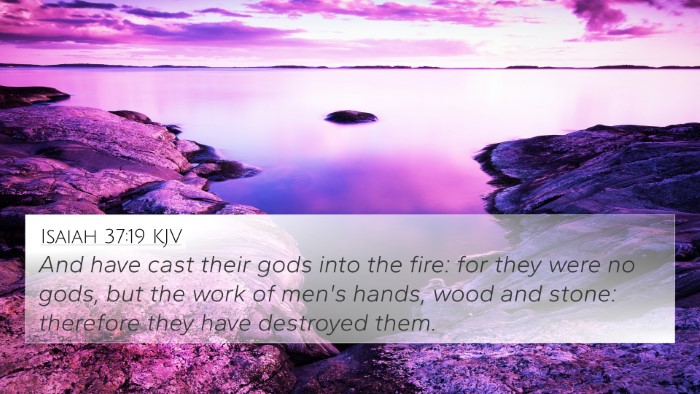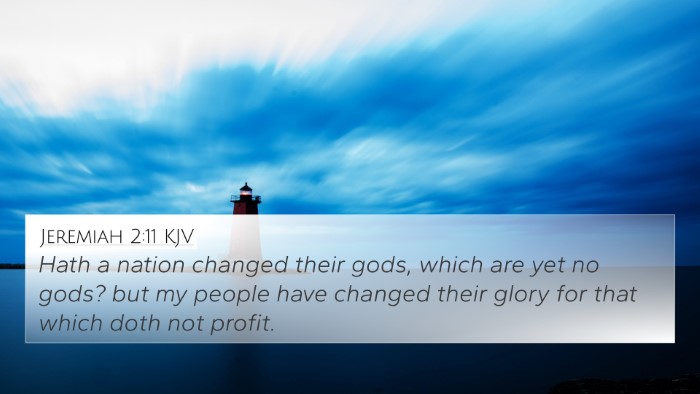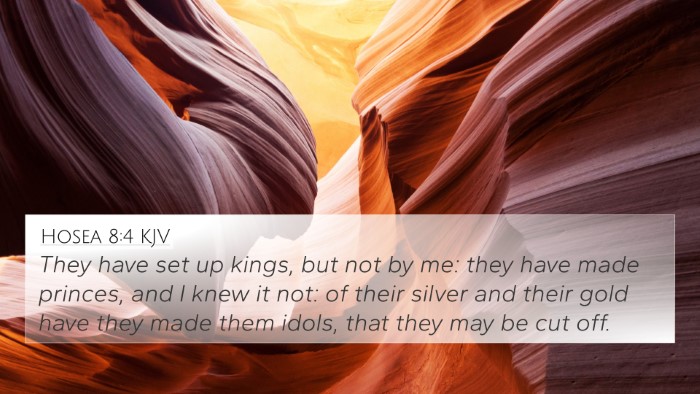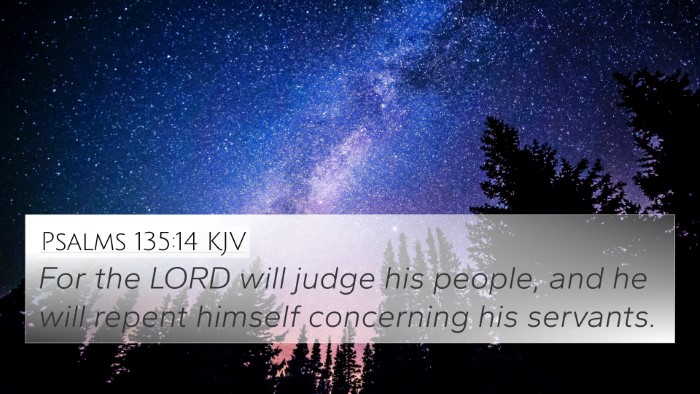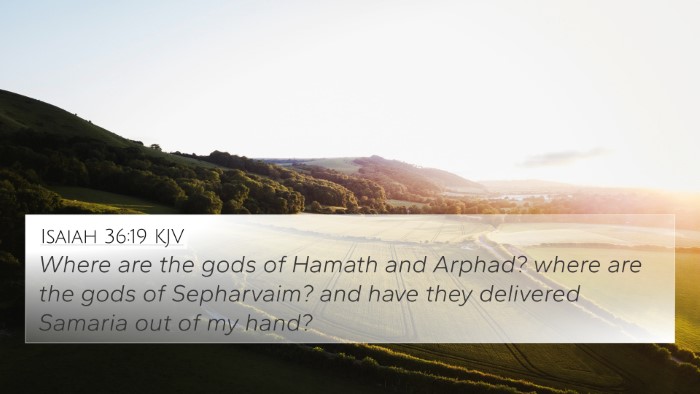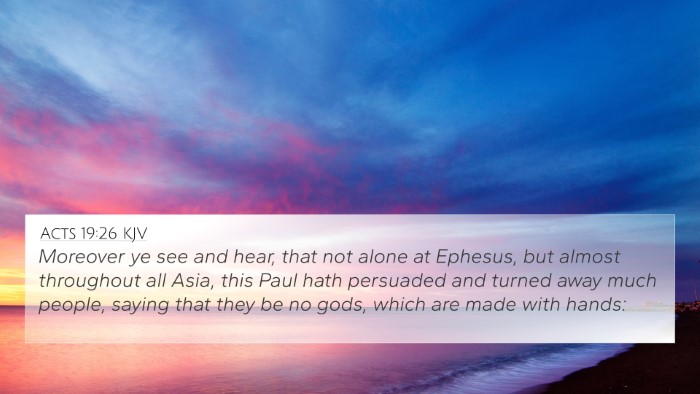Understanding Jeremiah 16:20
Jeremiah 16:20 states: "Shall a man make gods unto himself, and they are no gods?" This verse presents a profound question directed at the folly of idolatry, emphasizing the absurdity of creating deities that lack divine power and substance. Below, we explore the interpretations and insights derived from respected public domain commentaries including those by Matthew Henry, Albert Barnes, and Adam Clarke.
Overview of Jeremiah 16:20
This verse is part of a larger discourse regarding God's sovereignty, the futility of idol worship, and the consequences of abandoning true worship for false gods. Jeremiah, as a prophet, often confronted the people of Judah for their idolatry, calling them to return to worshiping the one true God.
Insights from Public Domain Commentaries
-
Matthew Henry:
Henry notes that this verse highlights the absurdity of mankind's actions when they attempt to create their own gods. He asserts that such practices reflect a deep misunderstanding of the divine nature and a failure to recognize the sovereignty of God. The folly lies in human efforts to ascribe agency and divinity to crafted objects rather than acknowledging the Creator.
-
Albert Barnes:
Barnes emphasizes that the question posed in this verse serves as a rhetorical device, aimed at making a clear distinction between the true God and the false gods that people create. He argues that the essence of idolatry is self-deception, wherein individuals turn to something they have made rather than the omnipotent God who has created them.
-
Adam Clarke:
Clarke elaborates on the cultural context, explaining how the Israelites often fell into the trap of idol worship despite the clear commandments against it. He further discusses how this verse serves as both a warning and a poignant reminder of God's unique and unmatchable nature, encouraging believers to reflect on the importance of true worship.
Thematic Connections and Cross-References
Jeremiah 16:20 connects to several significant Biblical themes, including the folly of idolatry and the recognition of God's supremacy. Below are key cross-referred verses that enhance our understanding:
- Exodus 20:3-5: The commandments that prohibit idolatry.
- Isaiah 44:9-20: A vivid comparison illustrating the absurdity of making idols.
- Psalm 115:4-8: Describes the characteristics of idols and the futility of those who serve them.
- Jeremiah 10:3-5: Further admonition against idol making and worship.
- 1 Corinthians 8:4-6: Teaching on the nature of idols and the singular nature of God.
- Acts 17:29: Paul's declaration that we are God’s offspring and should not think of divinity as crafted by human hands.
- Revelation 21:8: A warning about the fate of idolaters in the final judgment.
- Isaiah 45:20: A call to turn from idols to the God who saves.
- Hosea 8:4: God's disapproval of Israel's kings who made idols without divine direction.
- John 4:24: Emphasizes true worshipers must worship God in spirit and truth.
Conclusion
In summary, Jeremiah 16:20 serves not only as a confrontation against idolatry but also invites deeper reflection on the nature of God and the mistaken desires of humanity to shape divinity in their image. Drawing on the insights from Matthew Henry, Albert Barnes, and Adam Clarke, we recognize the critical importance of seeking true worship and understanding the connections between various Bible verses on this theme. The implications of this verse traverse through scripture, continuously challenging believers to assess their devotion and focus on the true God.
Importance of Cross-Referencing in Biblical Study
Using tools for Bible cross-referencing, such as a bible concordance or bible cross-reference guide, can significantly enhance one's study. Recognizing and interpreting the connections between Bible verses not only deepens understanding but also enriches one's devotional life and strengthens faith. For those keen on cross-referencing biblical texts, it is essential to actively engage with scripture to unveil the intricate thematic Bible verse connections embedded throughout the narrative of the Bible.




